Curing and healing: Medical Humanities in the AI Era--The Sub-forum on medical humanities of the medical education forum held in Beijing
From July 25th to 27th, 2025, the Medical Education Forum was grandly held in Beijing. This forum focused on the theme of “New Paradigm and New Challenges: Digital Intelligence Empowerment--Integrated Development”. It included 10 sub-forums. On July 27th, at the seventh sub-forum “Curing and Healing: Medical Humanities in the AI Era” hosted by the School of Medical Humanities at Peking University, more than 20 renowned experts and young scholars from around the world delivered academic reports, engaging in in-depth discussions on the integration pathways of intelligent technology and humanistic care, and jointly exploring new directions for the transformation of medical education. This sub-forum attracted nearly 100 participants, coming together to witness this academic event.
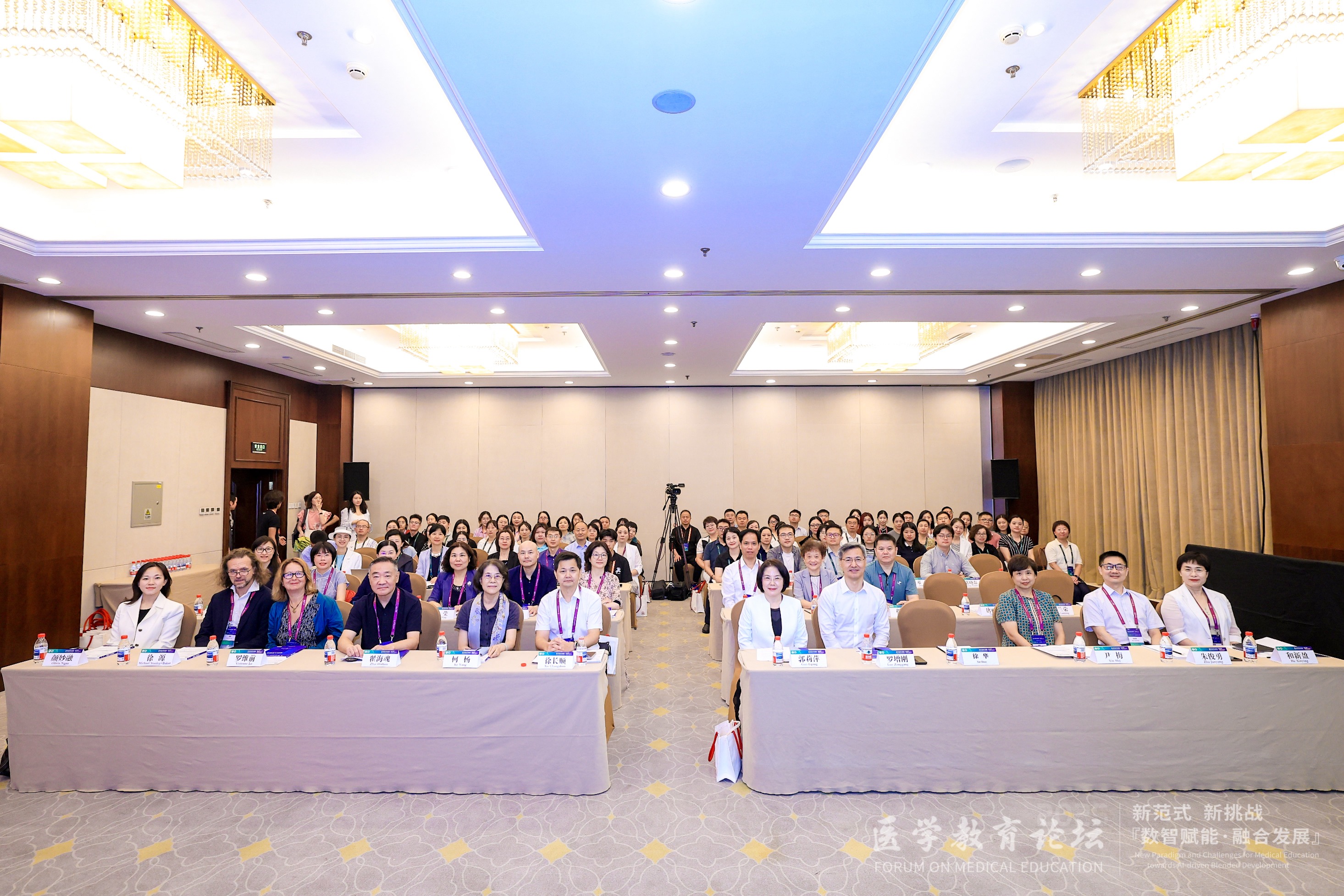
The opening ceremony was chaired by Professor Guo Liping, Dean of the School of Medical Humanities at Peking University and Chair of the sub-forum. Xu Changshun, Deputy Director-General of the Beijing Municipal Health Commission, attended the ceremony and delivered an address. In the opening remarks, Xu emphasized that artificial intelligence is profoundly transforming healthcare service processes, while the rapid advancement of large-scale AI models is enhancing diagnostic efficiency for rare and complex diseases. However, he stressed that the essence of healthcare remains “human-to-human care.” He pointed out that although AI can precisely identify lesions, it is not able to comprehend the patient’s fears; only physicians can observe and understand the deep-seated desires behind patients’ emotions. Medical humanities serve as the “ballast stone” in the wave of AI; that is, only by upholding the humanistic spirit can the very essence of medicine be preserved.
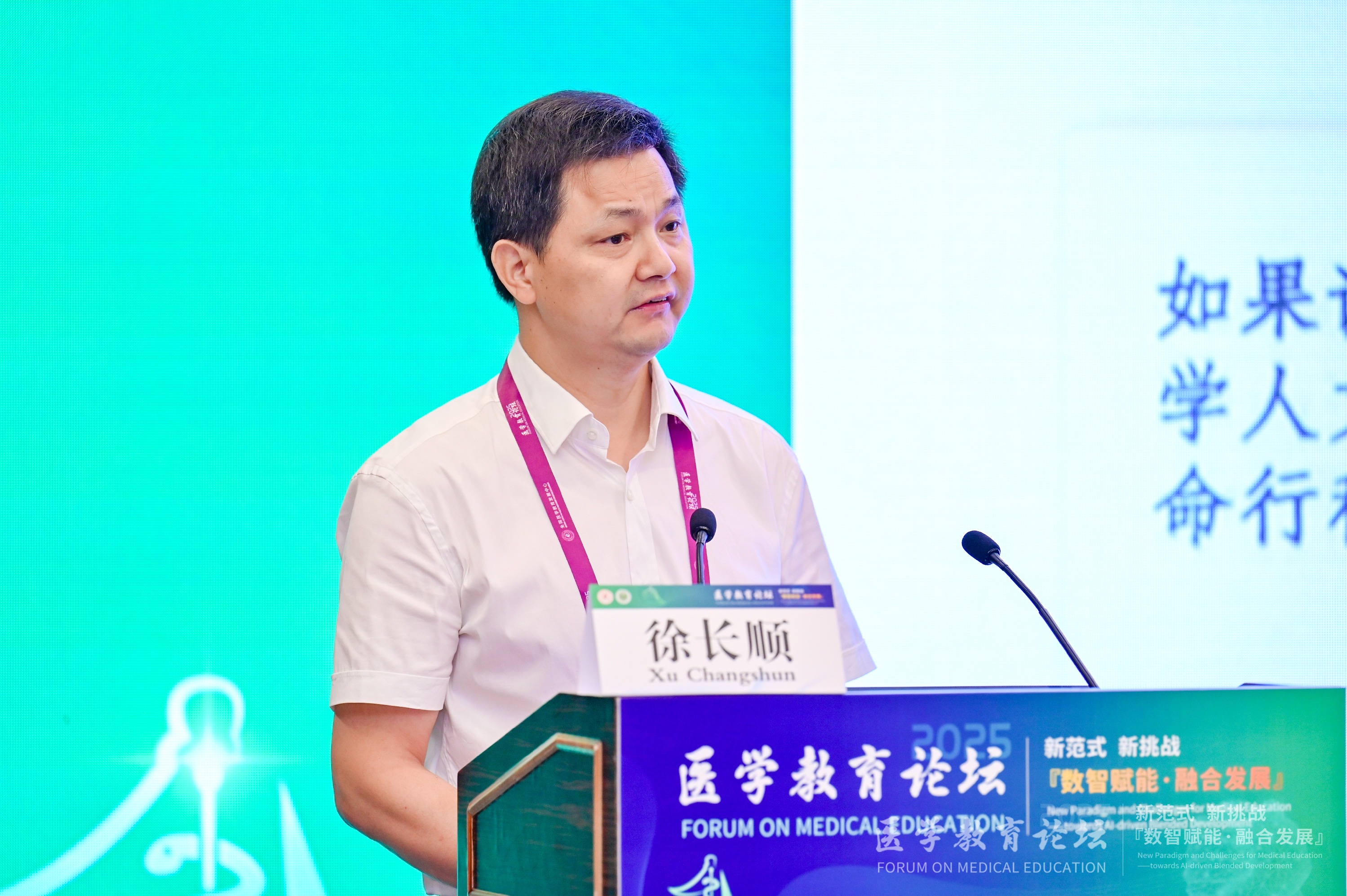
The first session of thematic reports was presided over by Professor Guo Liping, Dean of the School of Medical Humanities, Peking University.
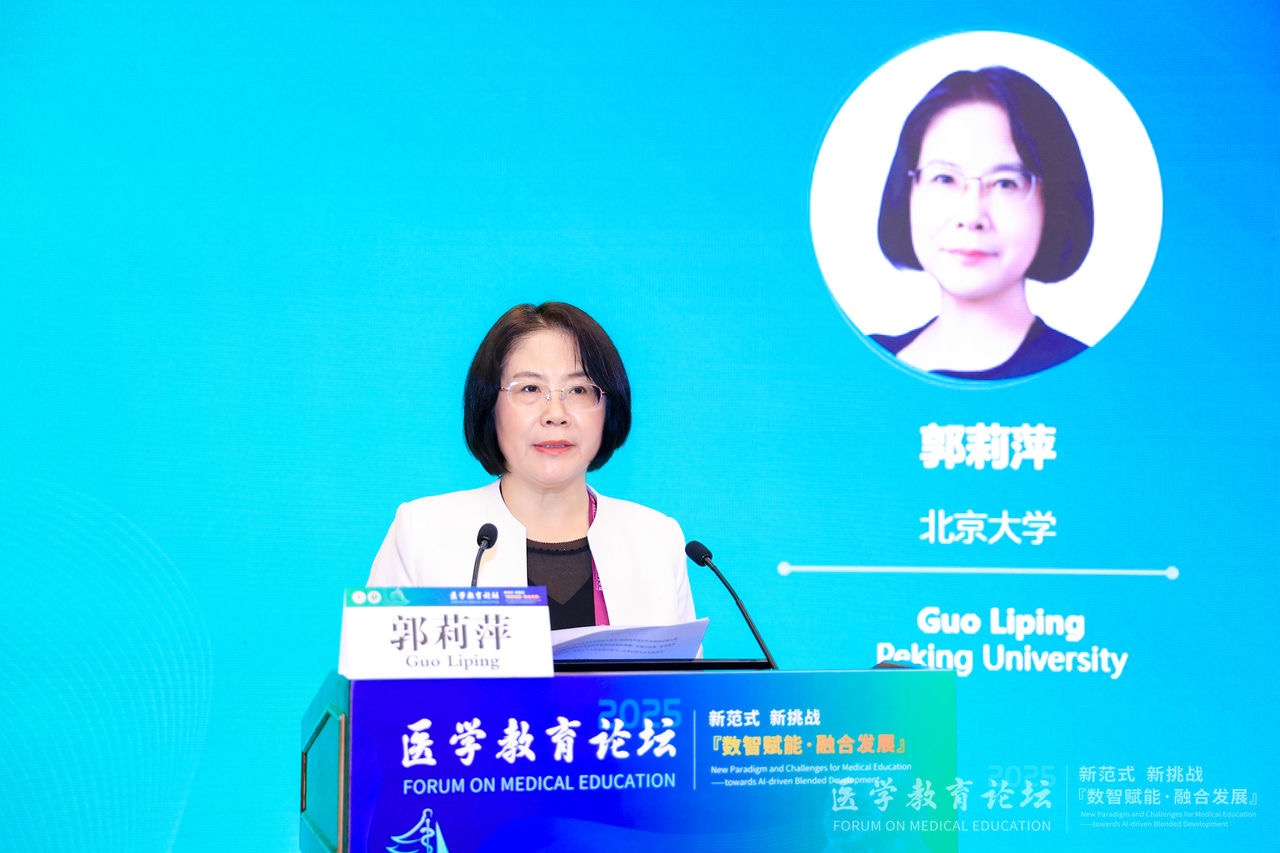
Professor Ke Yang, former Executive Vice President of Peking University, gave a systematic review titled “Reflections on Medical Humanities Education.” Starting from the history of medical technology development, she noted that the gap between medical technology and humanistic care is one of the underlying reasons for the increasingly tense relationship between doctors and patients in the current medical system. Professor Ke proposed that medical education should break through the limitation of “dominance of scientific thinking” and truly implement humanities education to enhance students’ capacity for communication, ethical judgment, and life care.
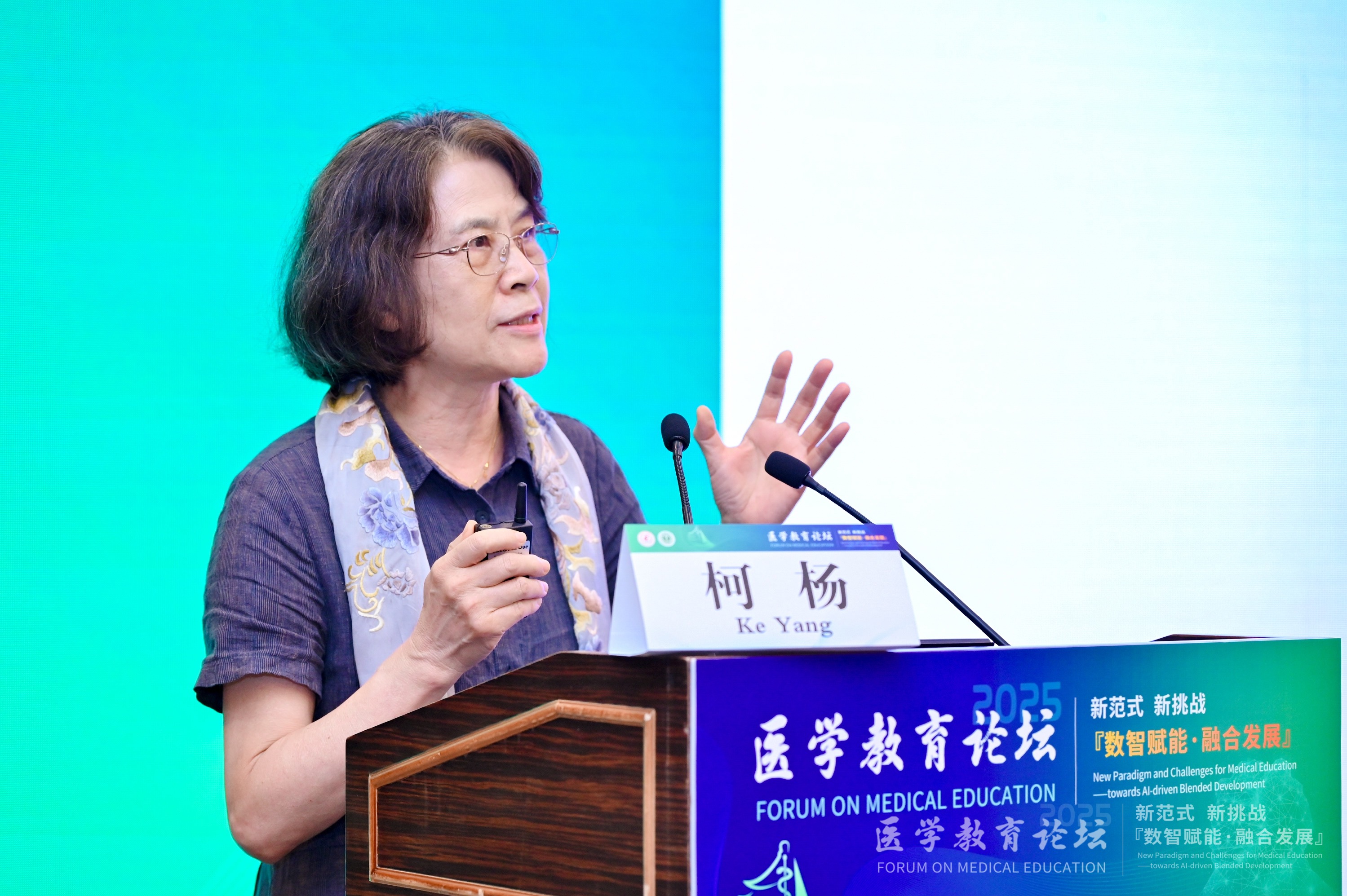
Luo Zenggang, Deputy Director (concurrently) of the Beijing Municipal Health Commission, Secretary of the Party Group, and Director of the Beijing Administration of Traditional Chinese Medicine, delivered a speech entitled “Science and Humanities: The Wisdom of Traditional Chinese Medicine Cultivates Benevolent Hearts and Skilled Medical Practices.” He pointed out that Traditional Chinese Medicine (TCM) itself is a medical system with profound humanistic care. From “inspection, auscultation and olfaction, inquiry, and palpation” to the syndrome differentiation and treatment based on “individual, place, and time,” TCM consistently maintains a meticulous attention to the individual’s life condition and psychological feelings during diagnosis and treatment, reflecting a high degree of ethical care. He emphasized that in the AI era, the humanistic value of TCM should be further explored and inherited.
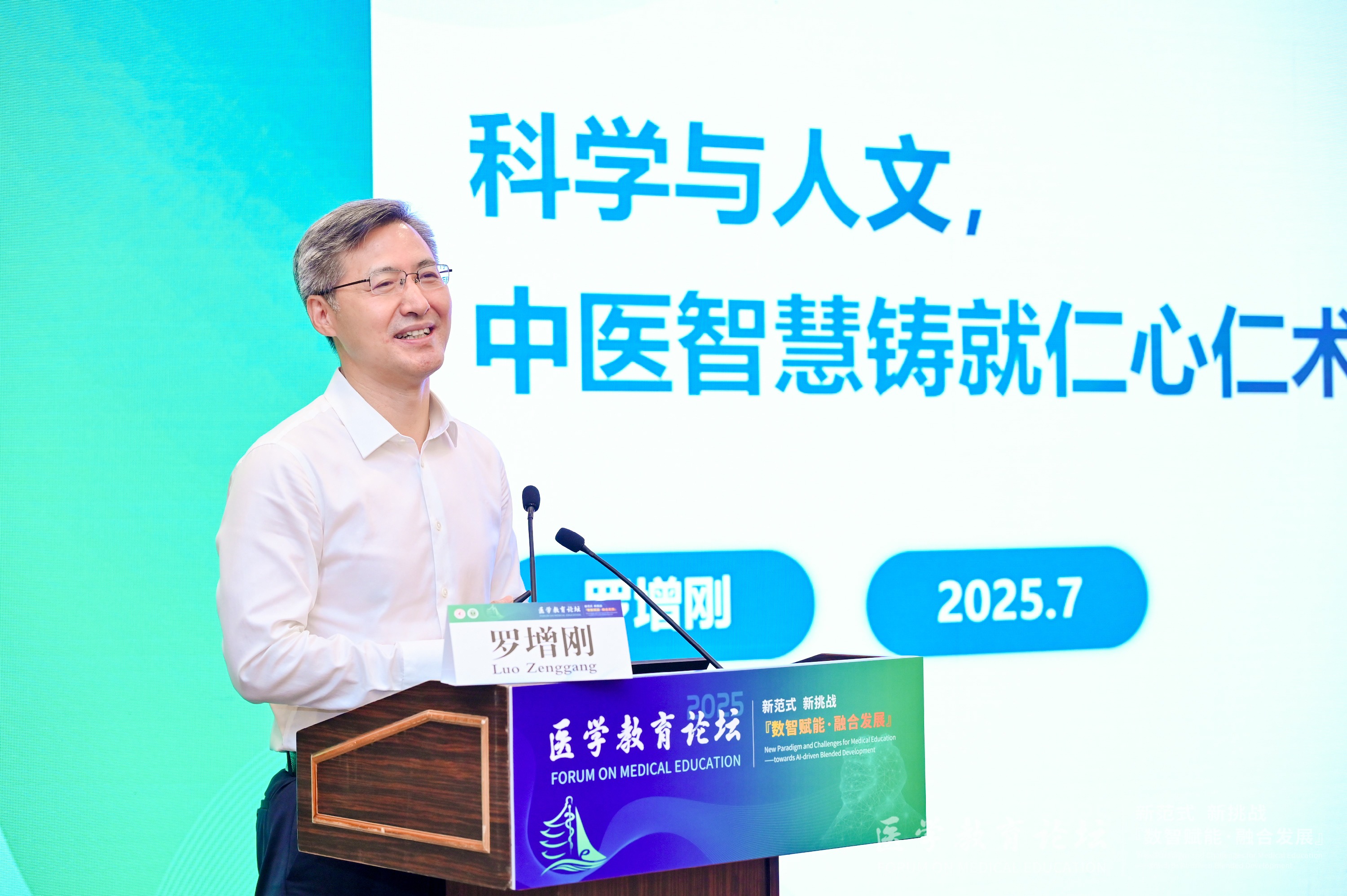
Professor Zhai Haihun, Chairman of the Steering Committee for Medical Humanities Education of the Ministry of Education and a professor at Hebei Medical University, delivered a report titled “History of Medicine and Medical Humanities Education.” Starting from the history of medicine, he demonstrated the homologous relationship between medical humanities concepts and medical development. He stressed that medical history can not only serve as a vivid textbook for humanities education but also deepen medical students’ understanding of the essence of their profession through methods like historical ward rounds. Professor Zhai cited the intellectual traditions of Hippocrates and the Inner Canon of Huangdi, emphasizing the importance of reviving the humanistic dimension in contemporary medicine dominated by scientific rationality.
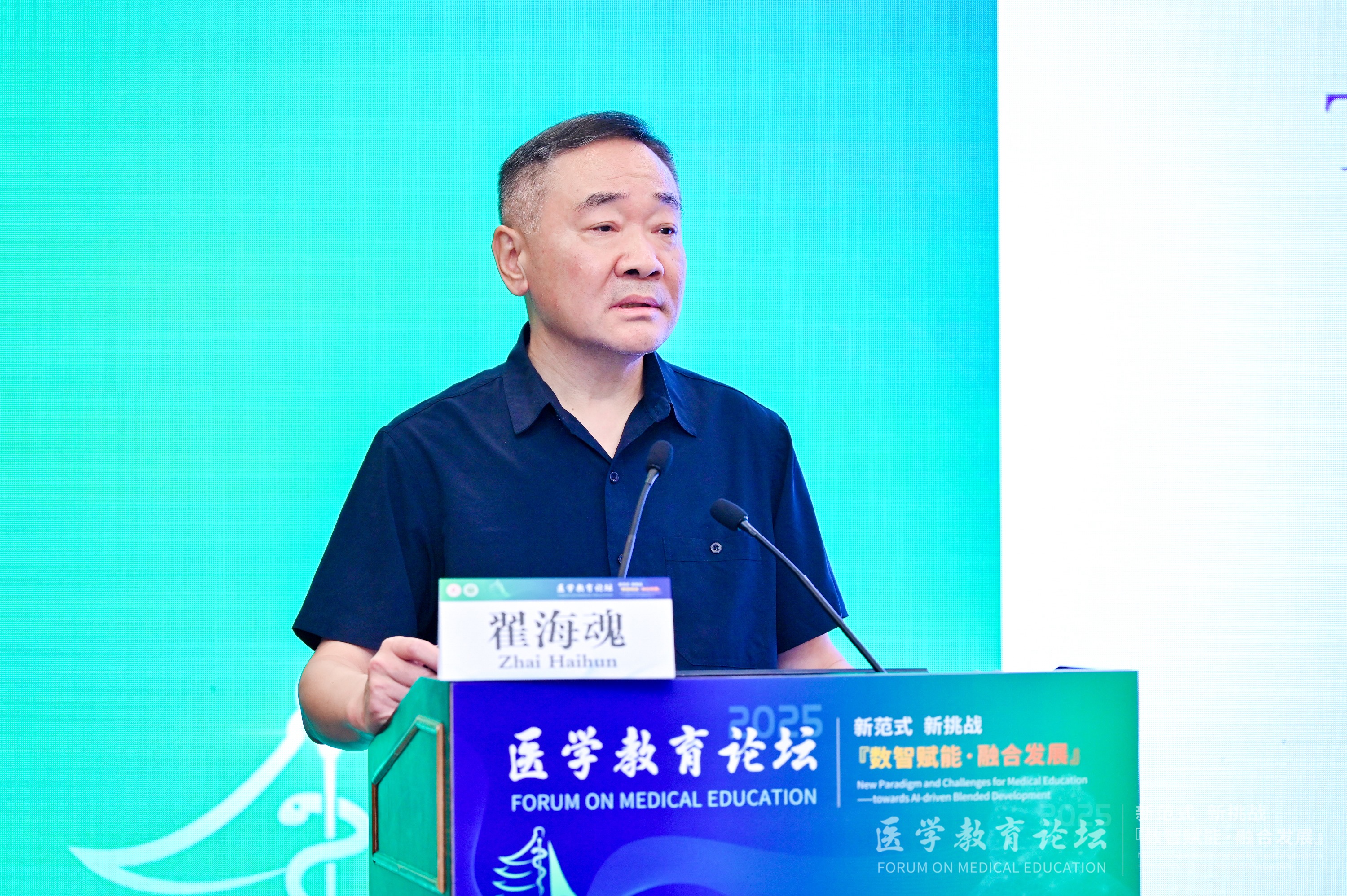
The second session of thematic reports was presided over by Professor He Xinying, Vice President of Xi’an Medical University.
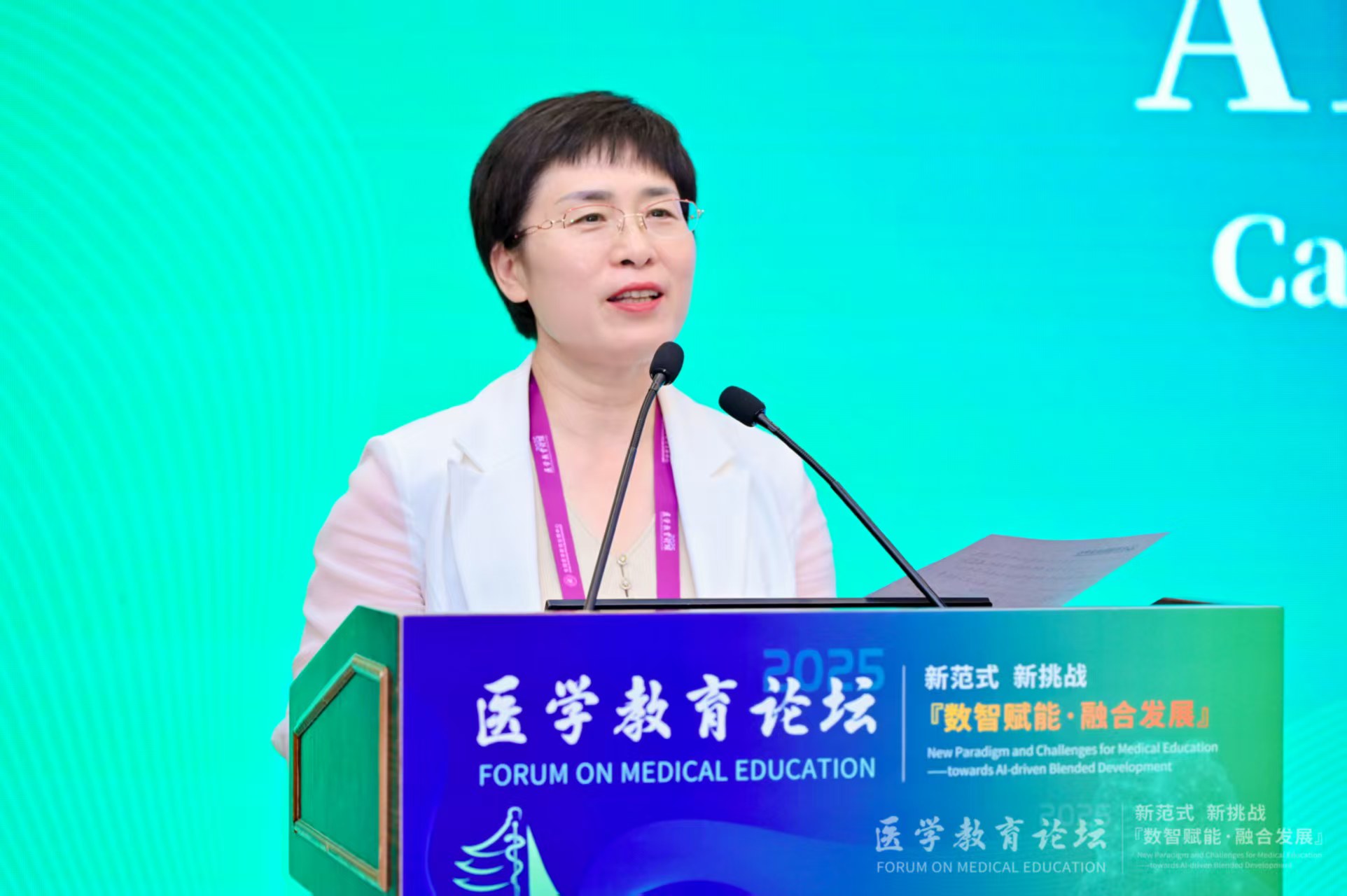
Professor Vivienne Lo from University College London, UK, delivered a report titled “Teaching Medical Humanities with Film.” She pointed out that Chinese films play an important role in breaking Western-centrism in medical humanities and shared her teaching practices using films such as Blind Mountain and Blind Massage.
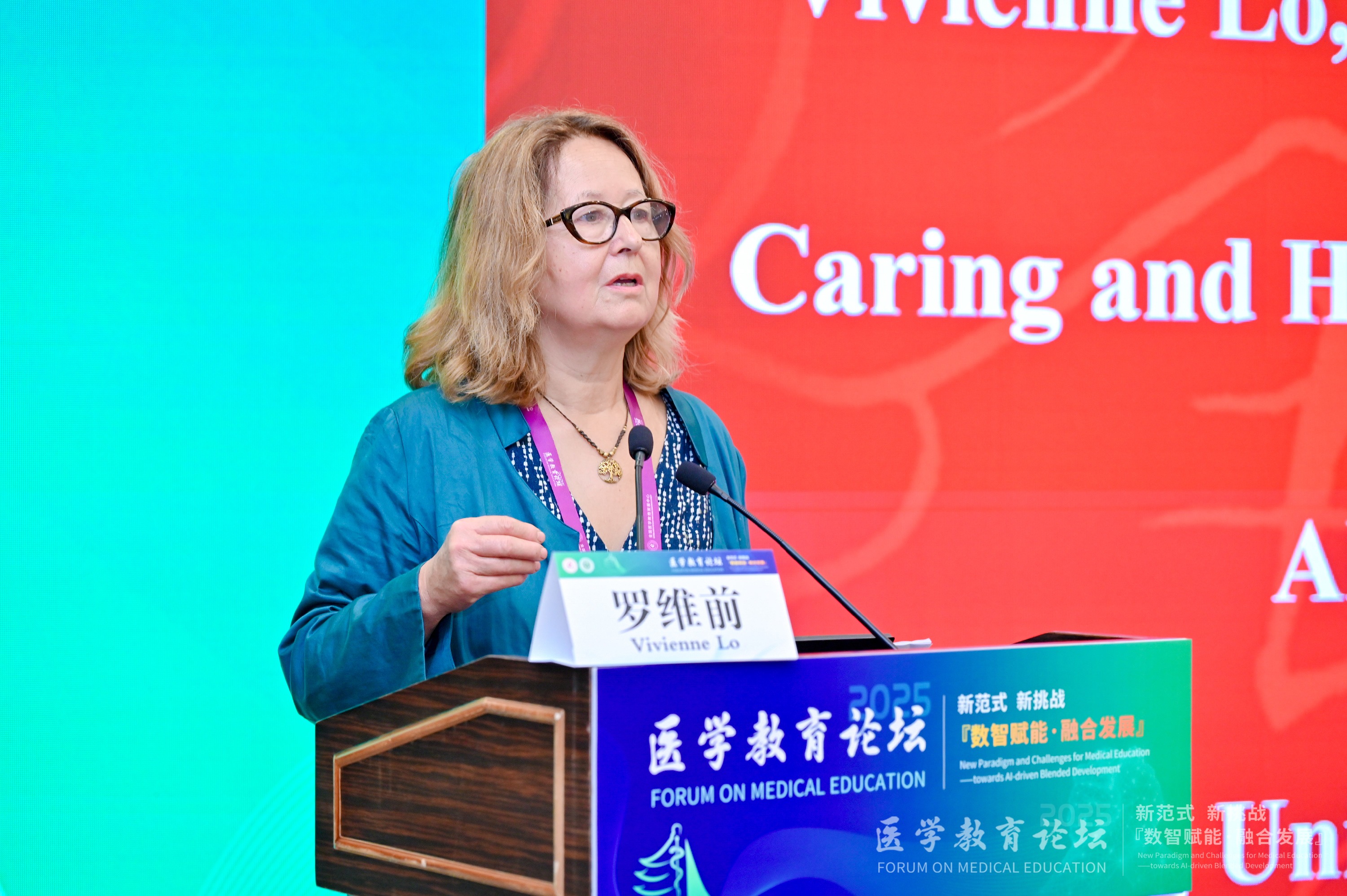
. The emotional impact of films can effectively cultivate students’ cross-cultural empathy.
Professor Michael Stanley-Baker from Nanyang Technological University, Singapore, presented a talk titled “Southeast Asian Flavours: Situating Health Humanities in Singapore.” He demonstrated map-making work transcending diverse cognitive communities, constructed by digital humanities technology, and proposed to activate the value of traditional medical wisdom in modern healthcare through localized teaching methods such as herbal garden practices and dialectal research on drug names.
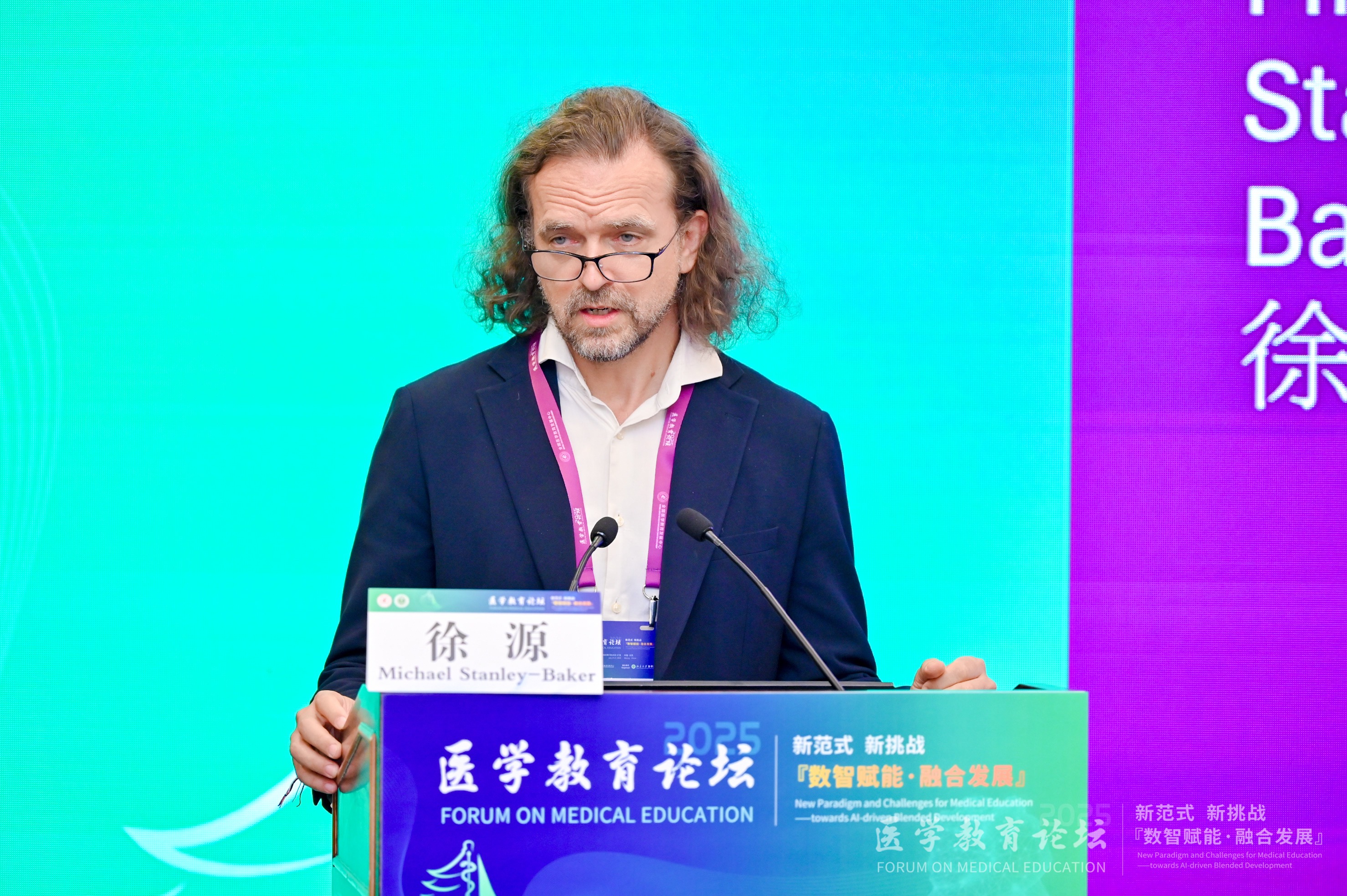
The third session of thematic reports was presided over by Professor Zhu Junyong, from Wuhan Medical University.
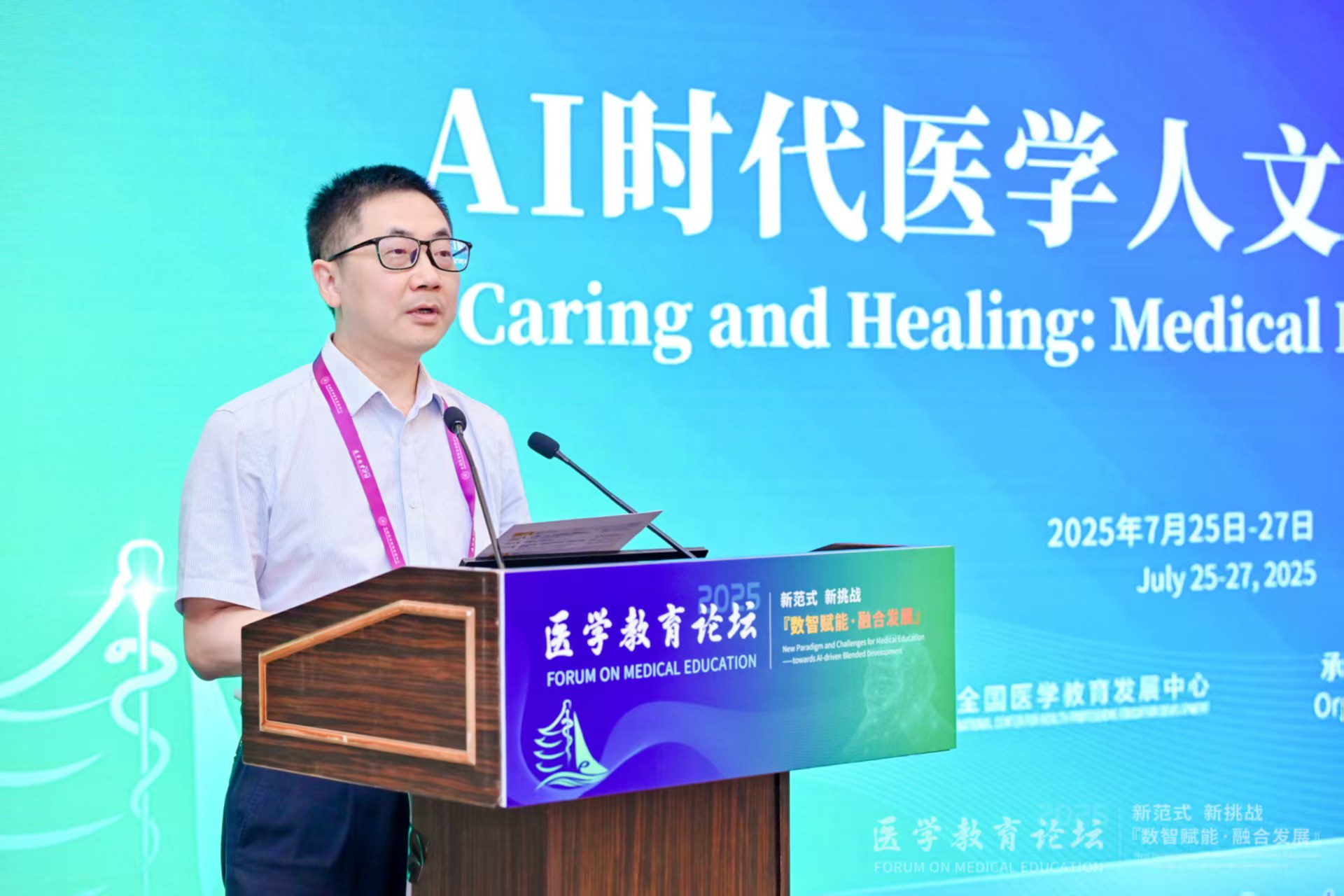
Dr. Olivia Ngan, Assistant Professor in the Medical Ethics and Humanities Unit at The University of Hong Kong, gave a presentation themed “Medical Humanities and Ethics at The University of Hong Kong.” In the report, she introduced the “five-year progressive” humanities curriculum design in the University of Hong Kong, which includes a mandatory performance class in the first year to break students’ barriers to expression, and the introduction of end-of-life care simulation experiments in senior years, transforming theory into emotional identification through artistic creation and community service.
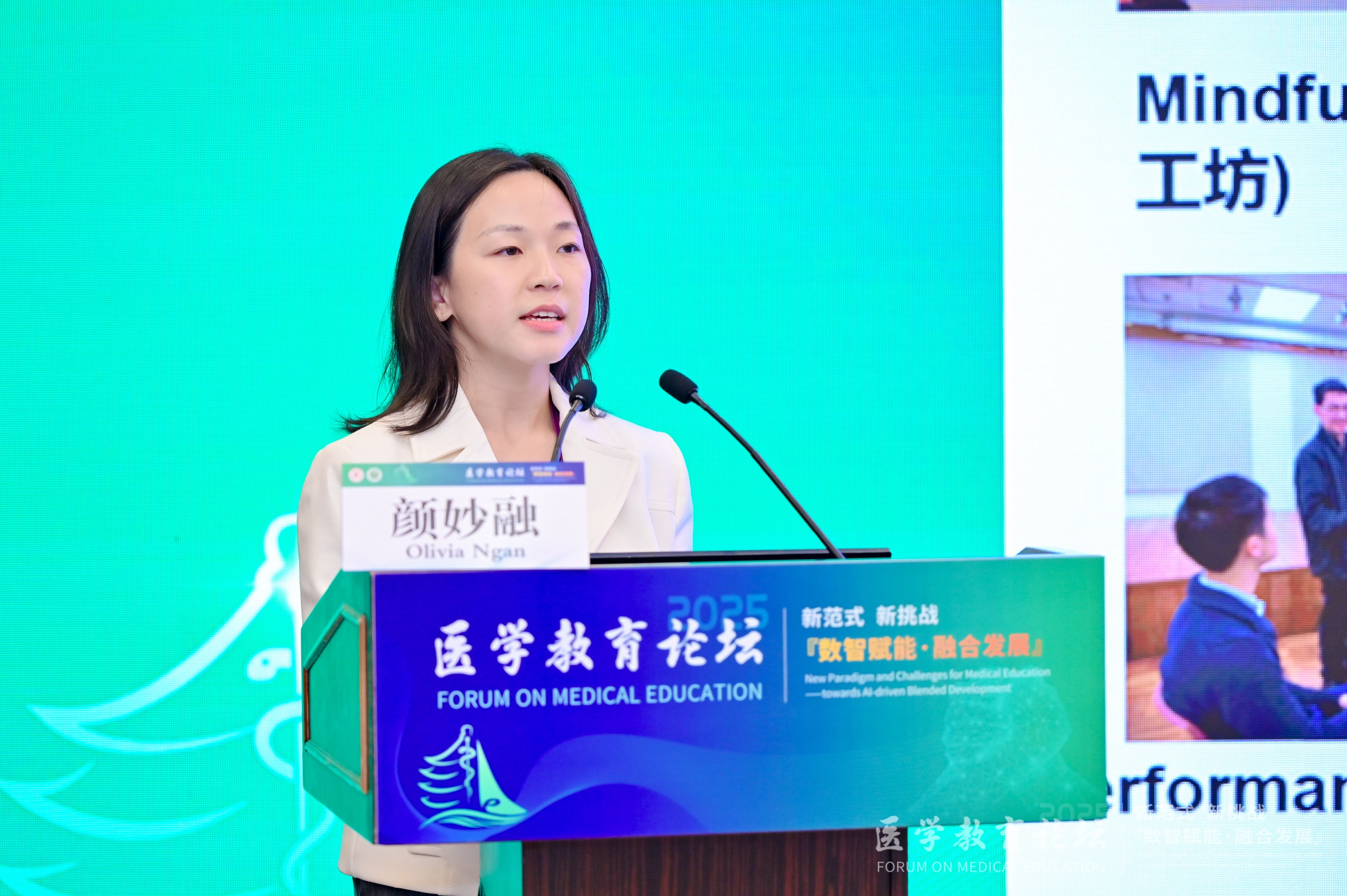
Professor Guo Liping from the School of Medical Humanities at Peking University delivered a report on "Providing Humane Care through Narrative-principlist Ethics." She pointed out that the traditional principlism ethics model struggles to cope with complex clinical situations, and narrative ethics provides a path to understanding the patient’s situation and achieving empathetic responses. She advocated adopting a “narrative-principlism ethics” model in ethics consultation to integrate the strengths and mitigate the weaknesses of both principlism and narrative ethics. She appealed to medical staff to enter the life narratives of patients, rebuilding doctor-patient trust in the interaction of “telling-listening-understanding,” to ensure medical practice in the AI era remains people-oriented.
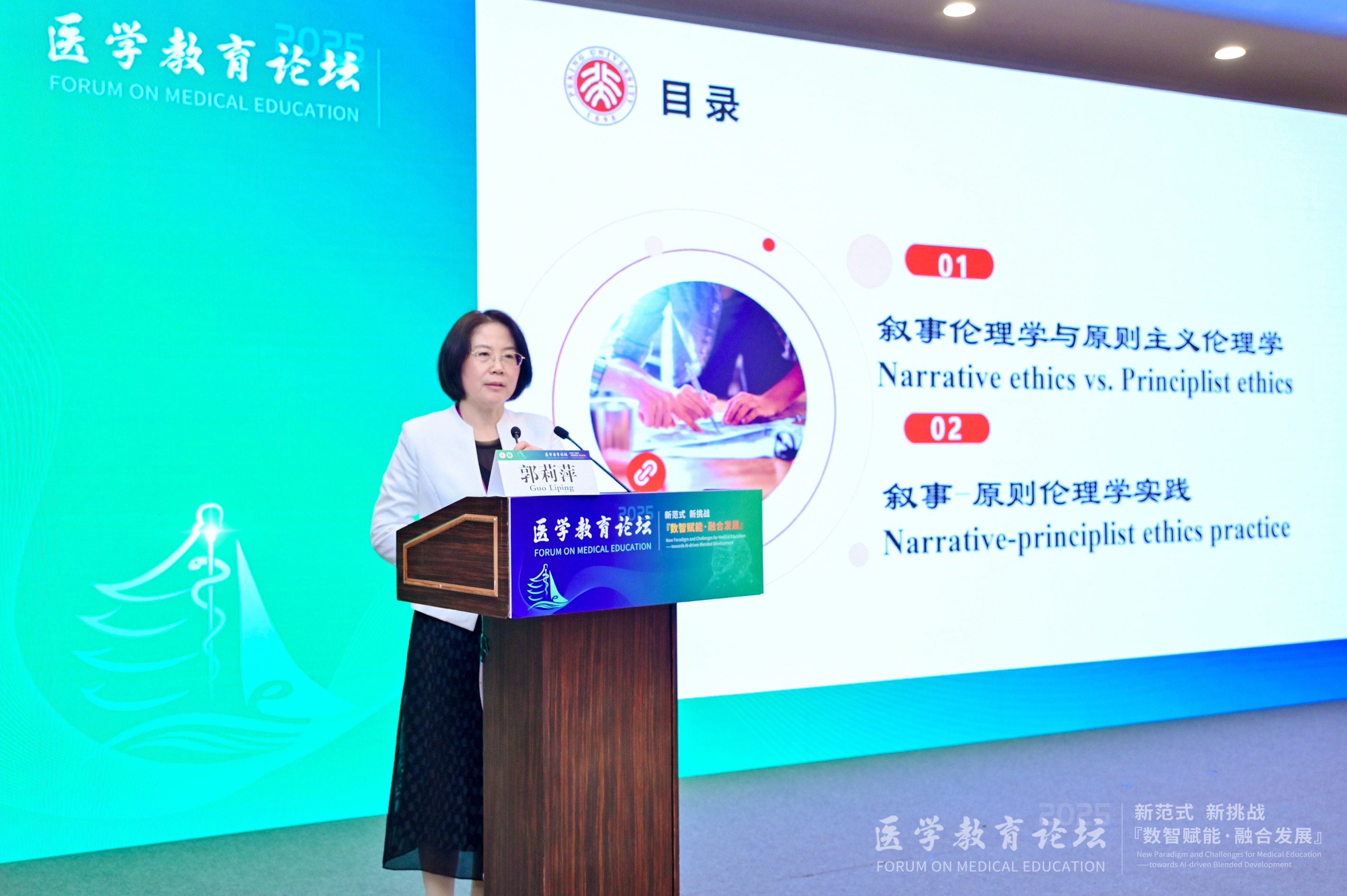
In the afternoon, the first session of thematic reports was presided over by Professor Xuhua, Executive Vice Dean of the Wuhan University School of Medicine.
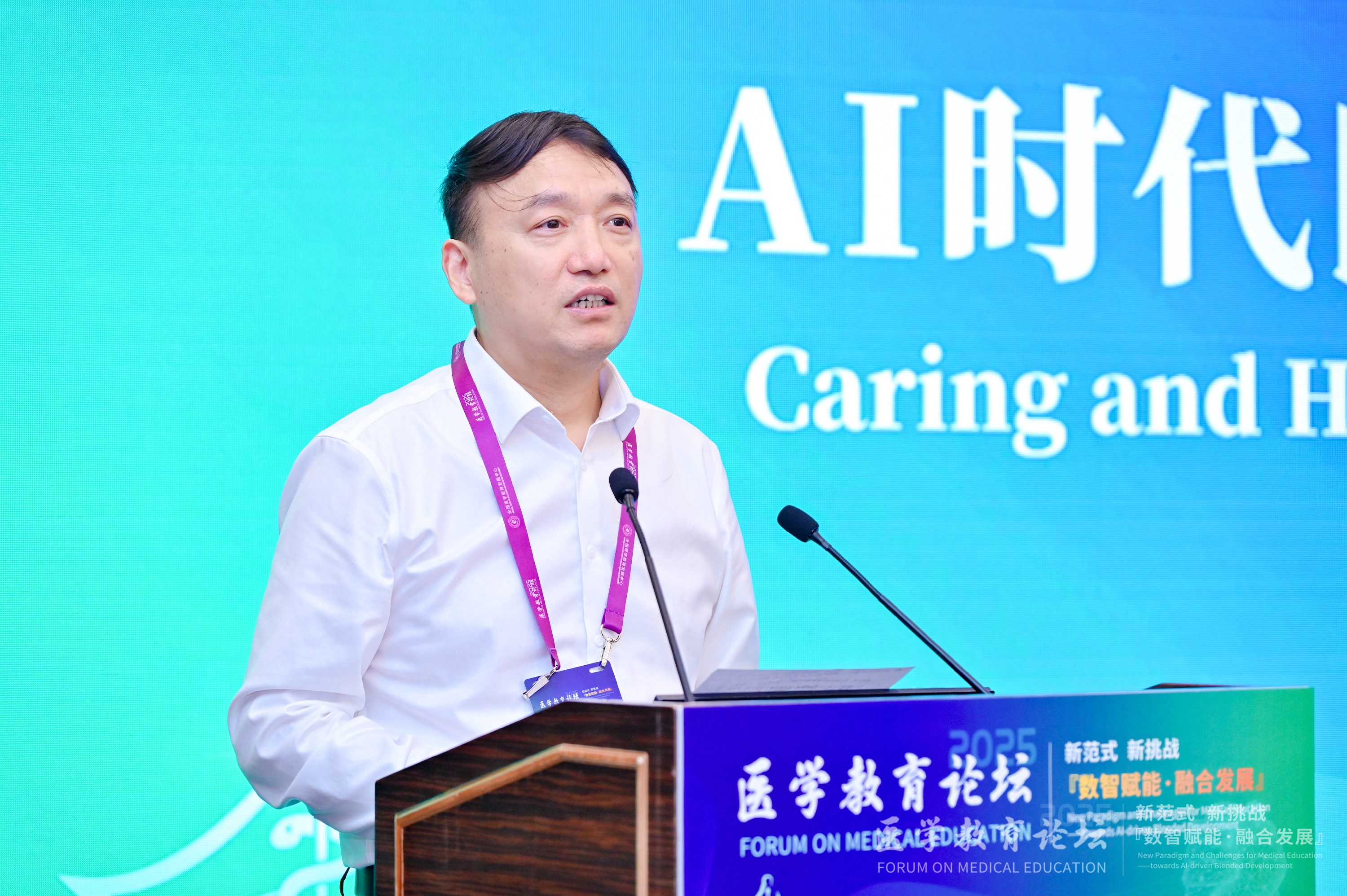
Liu Huan, Executive Vice Dean of the School of Humanities at Peking Union Medical College, delivered a report on behalf of Secretary Deng Haihua, titled “AI-Driven Humanistic Care: Pioneering a New Intelligent Paradigm in Medical Humanities Education.” She noted that AI is not a substitute for the humanities, but an enabler with enormous potential. She demonstrated on-site the “Doctor-Patient Empathy Language Virtual Simulation System” developed by the university, proposing that science and technology should amplify, not dilute, humanistic values.
.
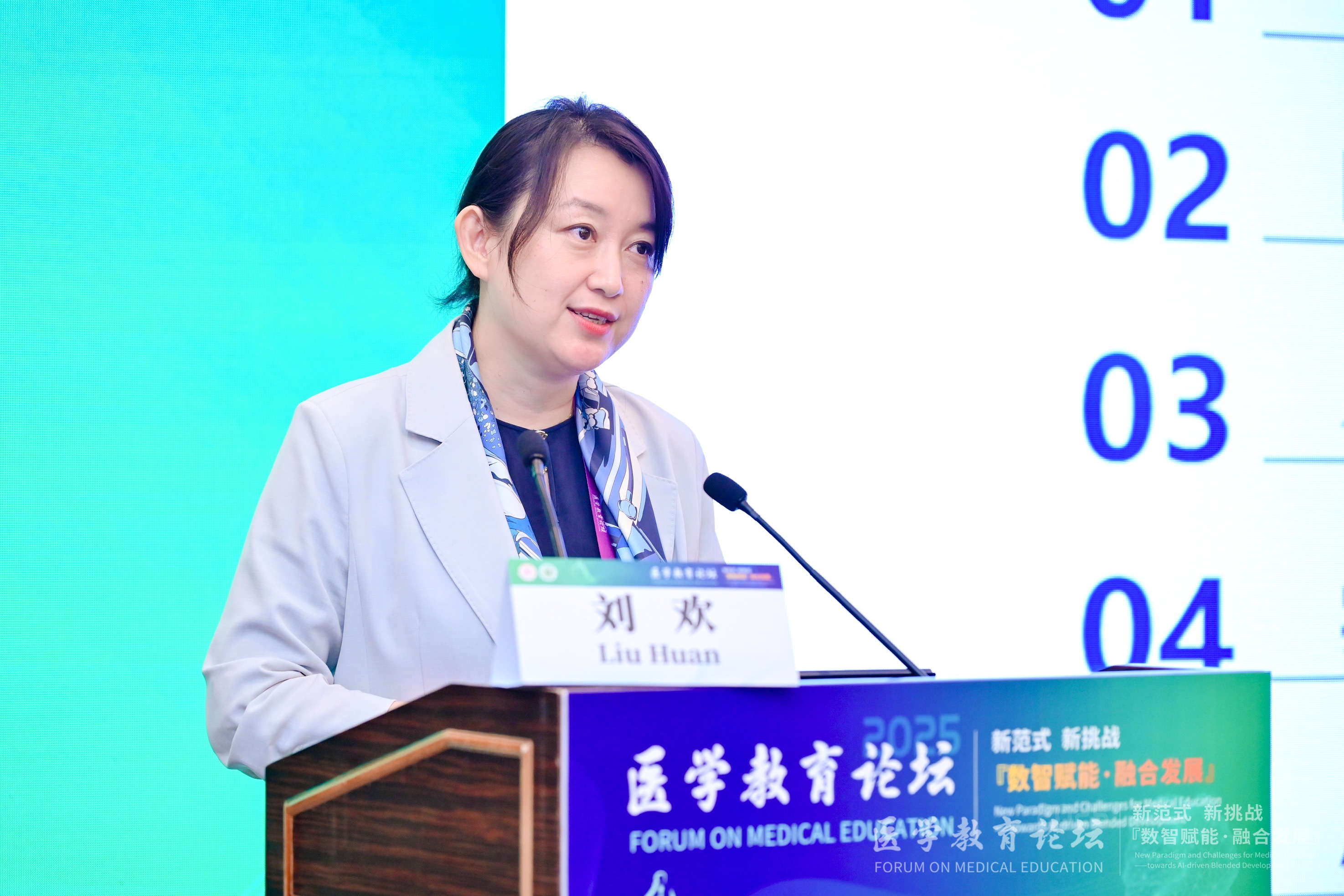
Yin Mei, Dean of the School of Humanities and Social Sciences at Harbin Medical University, supports the concept that “caring is treatment," with a real case from the oncology department in her report “Pursuing Vitality in Medical Humanities Education,”. The case is that a doctor used the metaphor of a “battle between seedlings and weeds” to alleviate patients’ fear of chemotherapy, confirming the key function of empathetic language in treatment adherence.
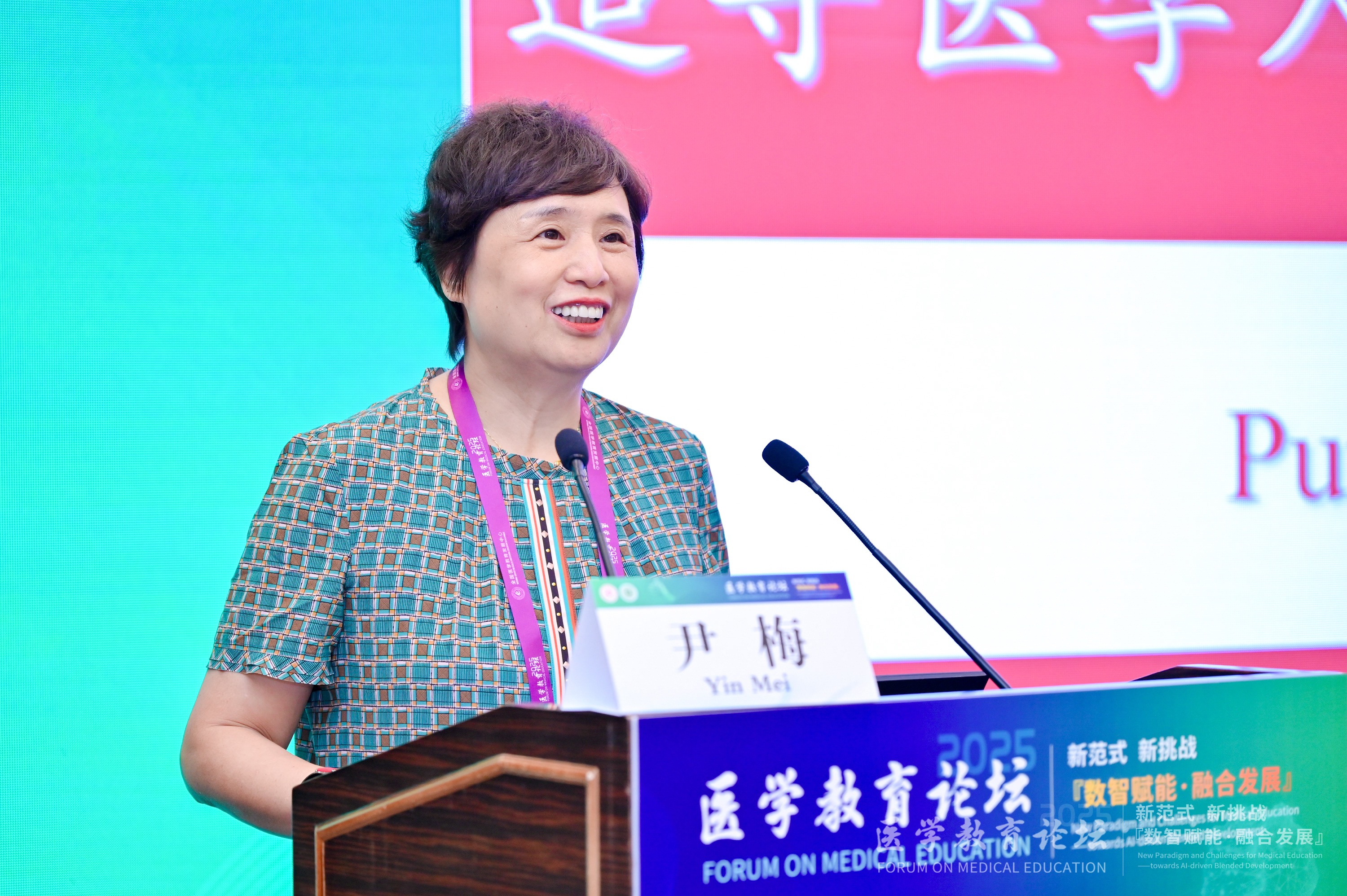
Professor Zhang Yuelang, Director of the Department of Radiology at the Second Affiliated Hospital of Xi'an Jiaotong University, gave a report titled “Experience Sharing on Curriculum Ideological and Political Education Empowering First-Class Course Development: A Case Study of the Medical Humanities and Practice Course.” She proposed the training goal of a “doctor with five loves” and integrated it into clinical teaching, cultivating “decision-makers with warmth” through practices such as mock courts and communication clinics.
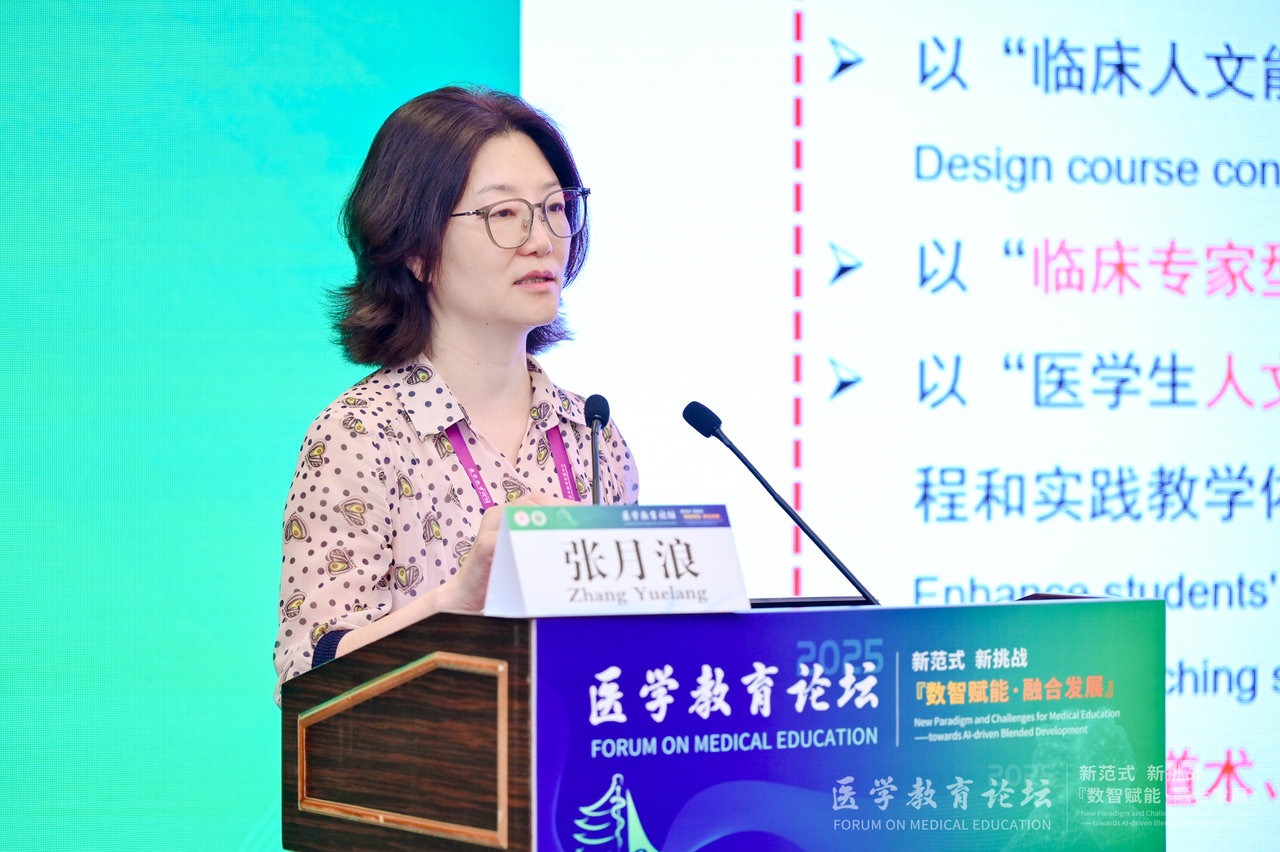
The second session of thematic reports in the afternoon was presided over by Professor Zheng Lanrong, Deputy Secretary of the Party Committee and President of Bengbu Medical University.
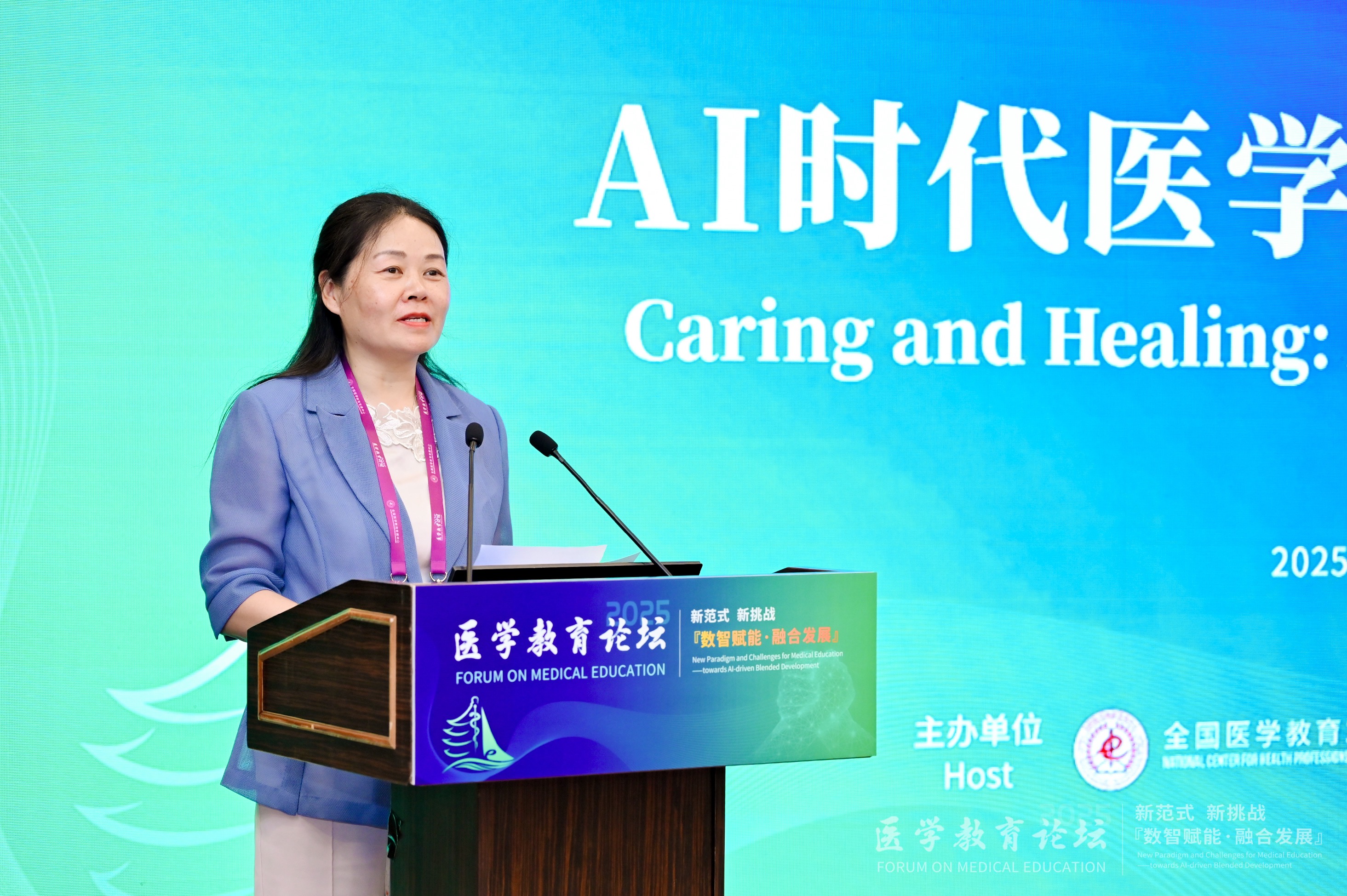
Professor Deng Rui, Dean of the School of Humanities at Shanxi Medical University, reported on “Reconstruction of the Doctor’s Roles and the Guardianship of Humanistic Values in the AI Era.” She pointed out that in the AI era, the doctor’s roles need to be reconstructed as “chief technology experience officer and humanistic ballast stone," and emphasized that the core value of doctors lies in the overall health education of patients, rather than simply diagnosing and treating diseases.
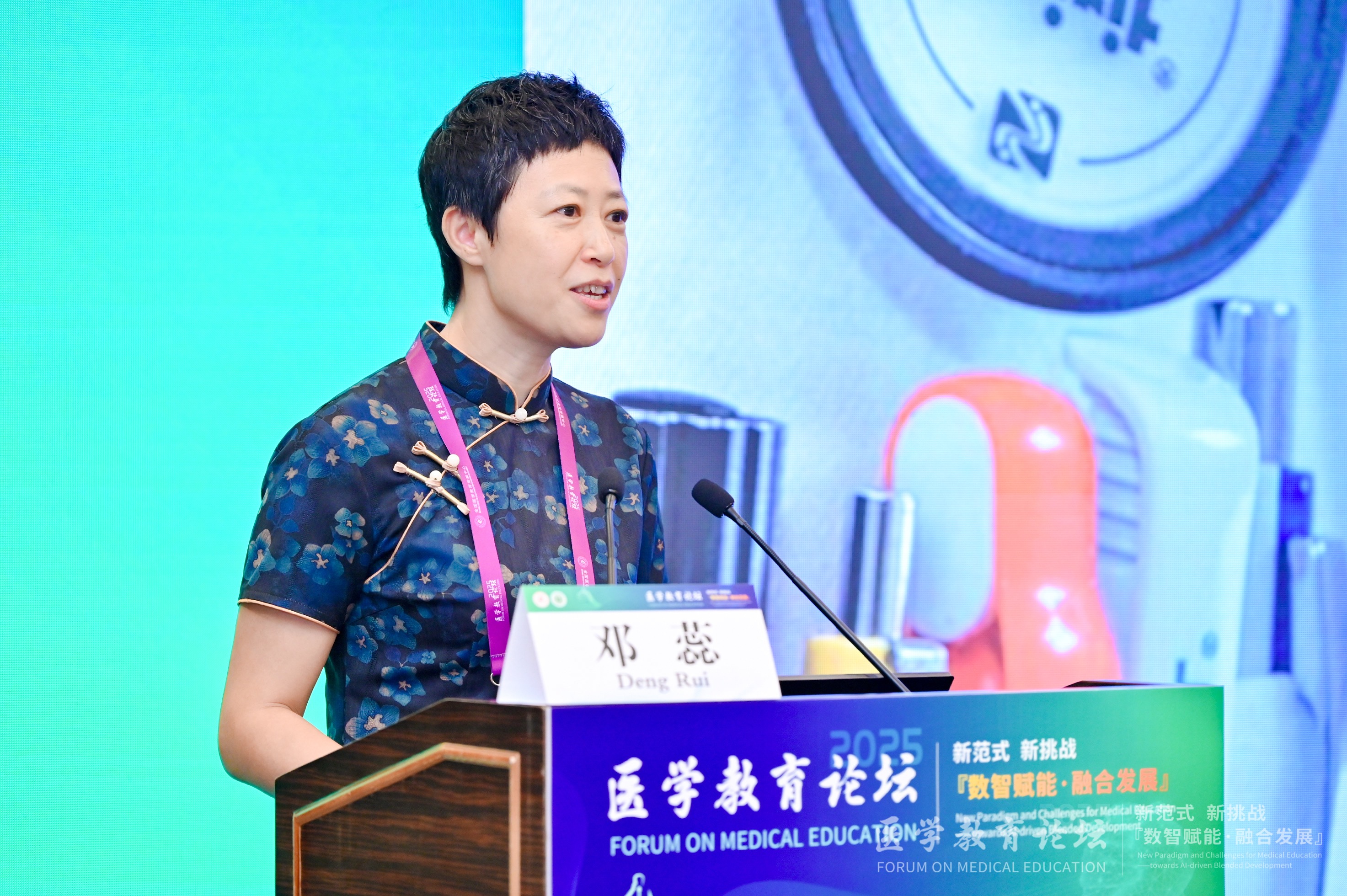
Dr. Yu Yangyang, Deputy Director of the Center for Medical Humanities at Shenzhen University, reported on “Constructing a Whole Person Medical Education Model in the AI Era: Integrated Practice of Evidence-Based and Narrative Medicine.” He proposed “Integrating Evidence-Based and Narrative Approaches in Clinical Practice,” breaking the traditional biomedical model with phenomenological theory, and advocated for locating the root of disease from the patient’s illness and pain narrative to reconstruct holistic medical education.
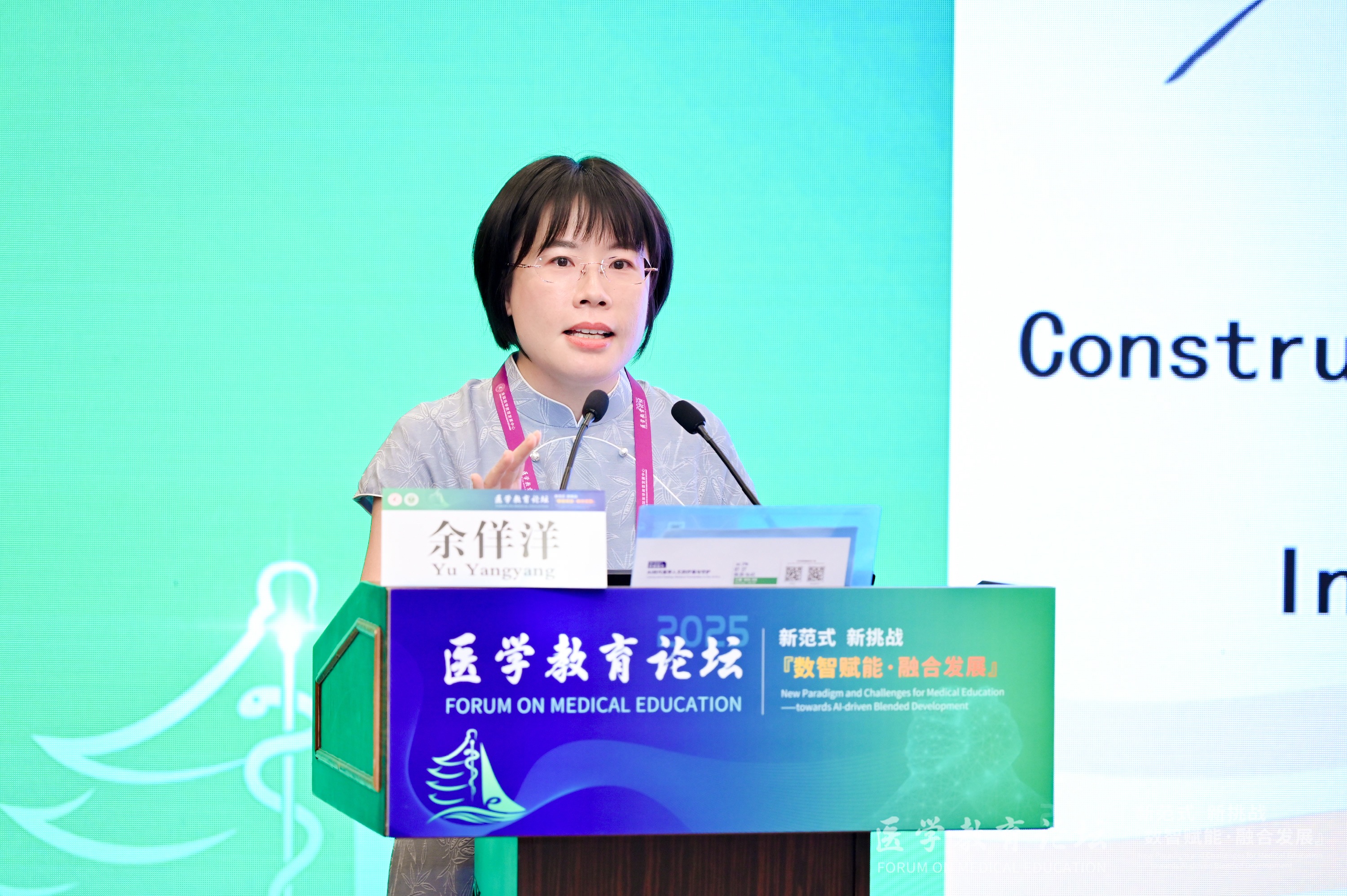
After a short break, the conference proceeded to the roundtable discussion session. The topic for discussion and exchange was “Clinical Medical Humanities: From Theory to Practice.” This session was chaired by Professor Qiu Jingfu, Vice President of Chongqing Medical University. Four guests, Professor Zhu Liming, Chief Physician of the Department of Medical Oncology at Zhejiang Cancer Hospital; Professor Cheng Yu, Vice Dean of the Joint Institute of Medical Humanities at Sun Yat-sen University; Professor Yang Mianhua, Director of the Higher Education Research Office at Shantou University Medical College; and Professor Li Haichao, President of Beijing Chao-Yang Hospital, Capital Medical University, shared their experience of practice of clinical medical humanities in their respective institutions.
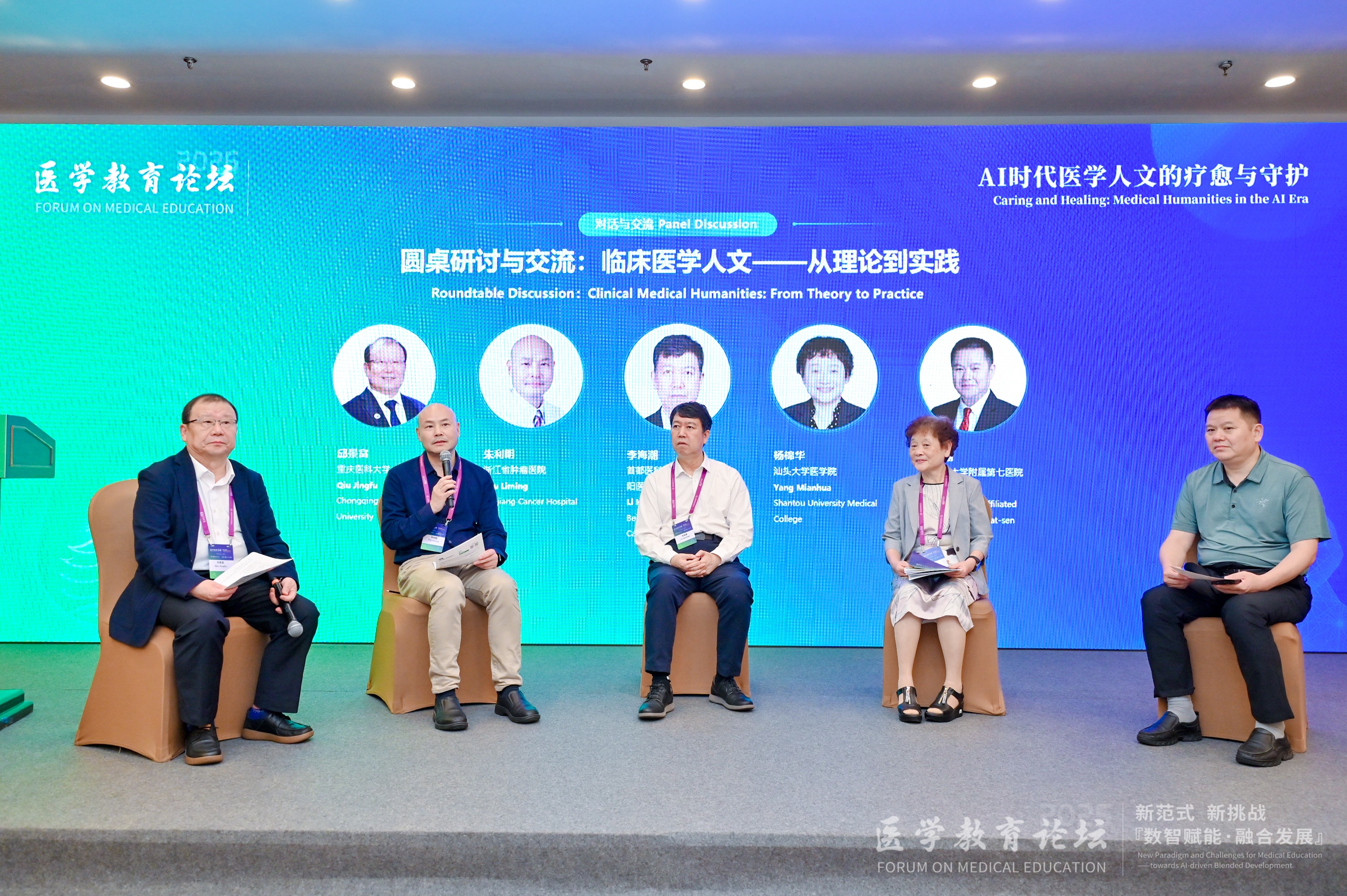
The third session of thematic reports in the afternoon was presided over by Professor Wang Ying, Executive Deputy Secretary of the Party Committee of the School of Medicine, Henan University.
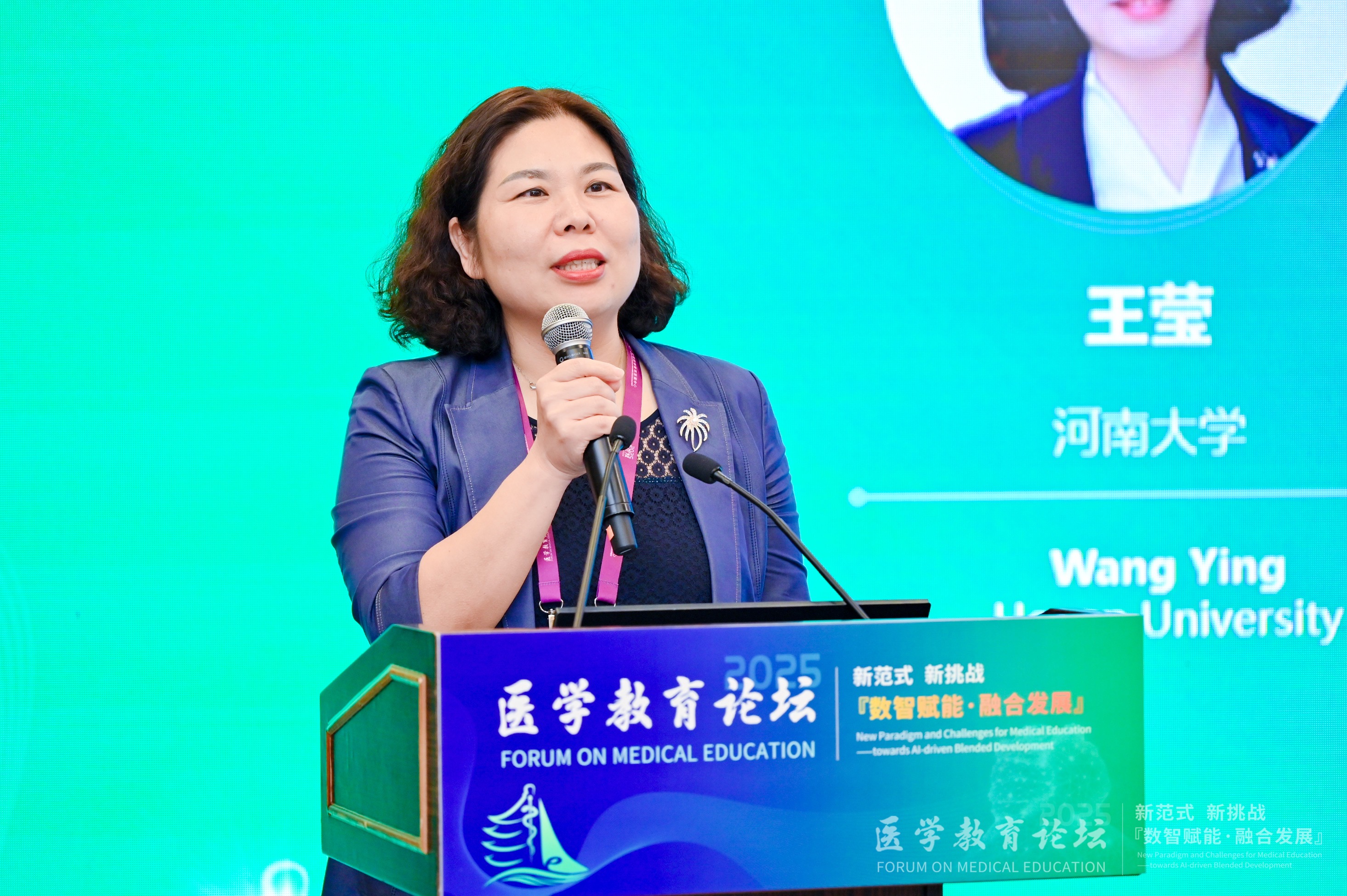
Professor Tang Lili, Director of the Rehabilitation Department at Peking University Cancer Hospital, delivered a report entitled “Medical Humanities Cases in Clinical Oncology Practice.” She noted that spiritual pain is a core challenge for cancer patients. Through real clinical cases, she explained how to use narrative therapy and meaning therapy to help cancer patients reconstruct the value of life.
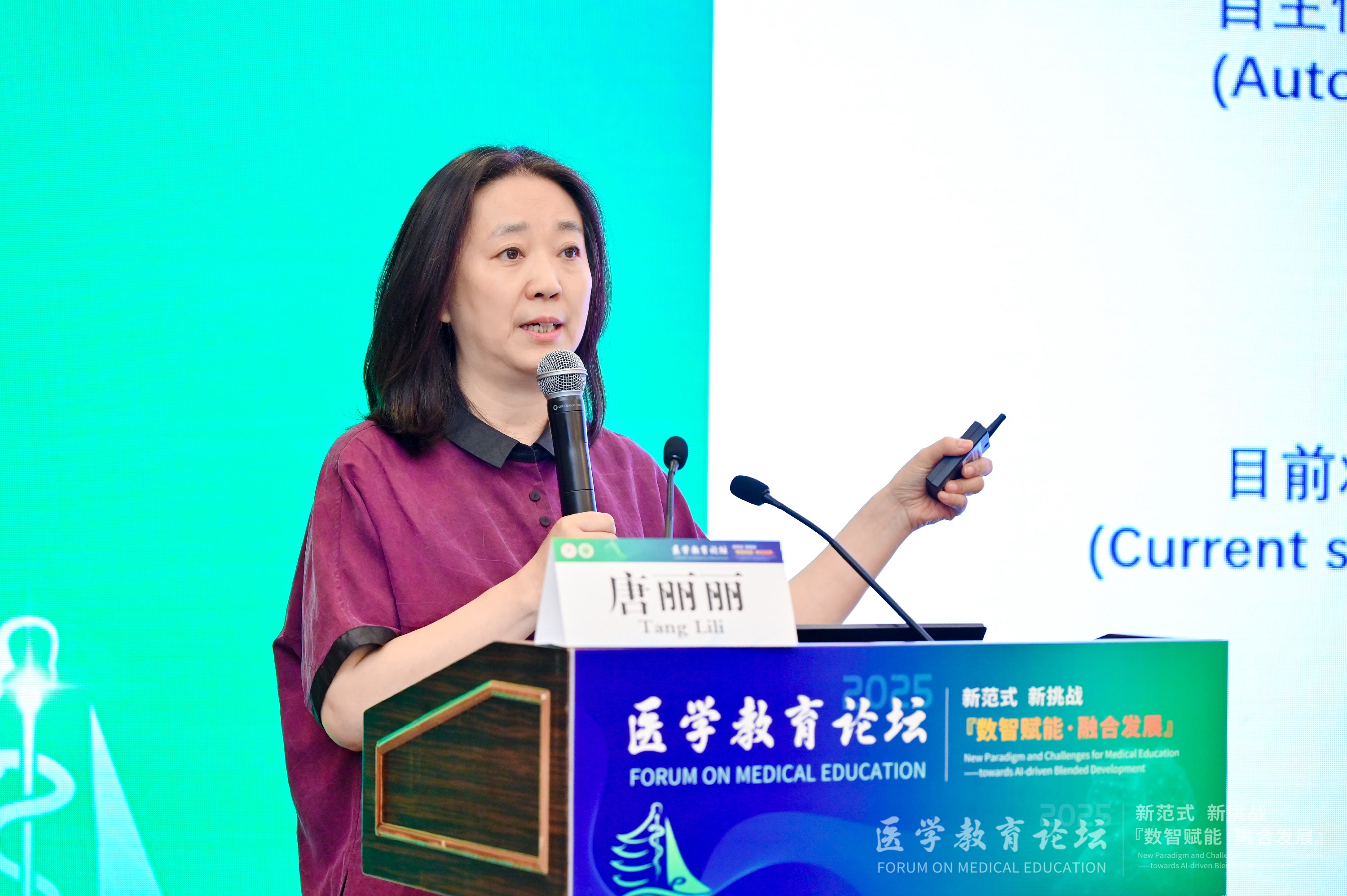
Han Shuangxue, an associate researcher from Beijing Tongren Hospital, Capital Medical University, reported on the topic “Medical Social Work: Explore and Practice of Medical Humanities in Public Hospitals.” She shared real medical humanities cases, such as how the “Ai Mu Tong Xing” service for the elderly solves the difficulties of the elderly in seeking medical care, and the use of AI to assist in generating parallel medical records.
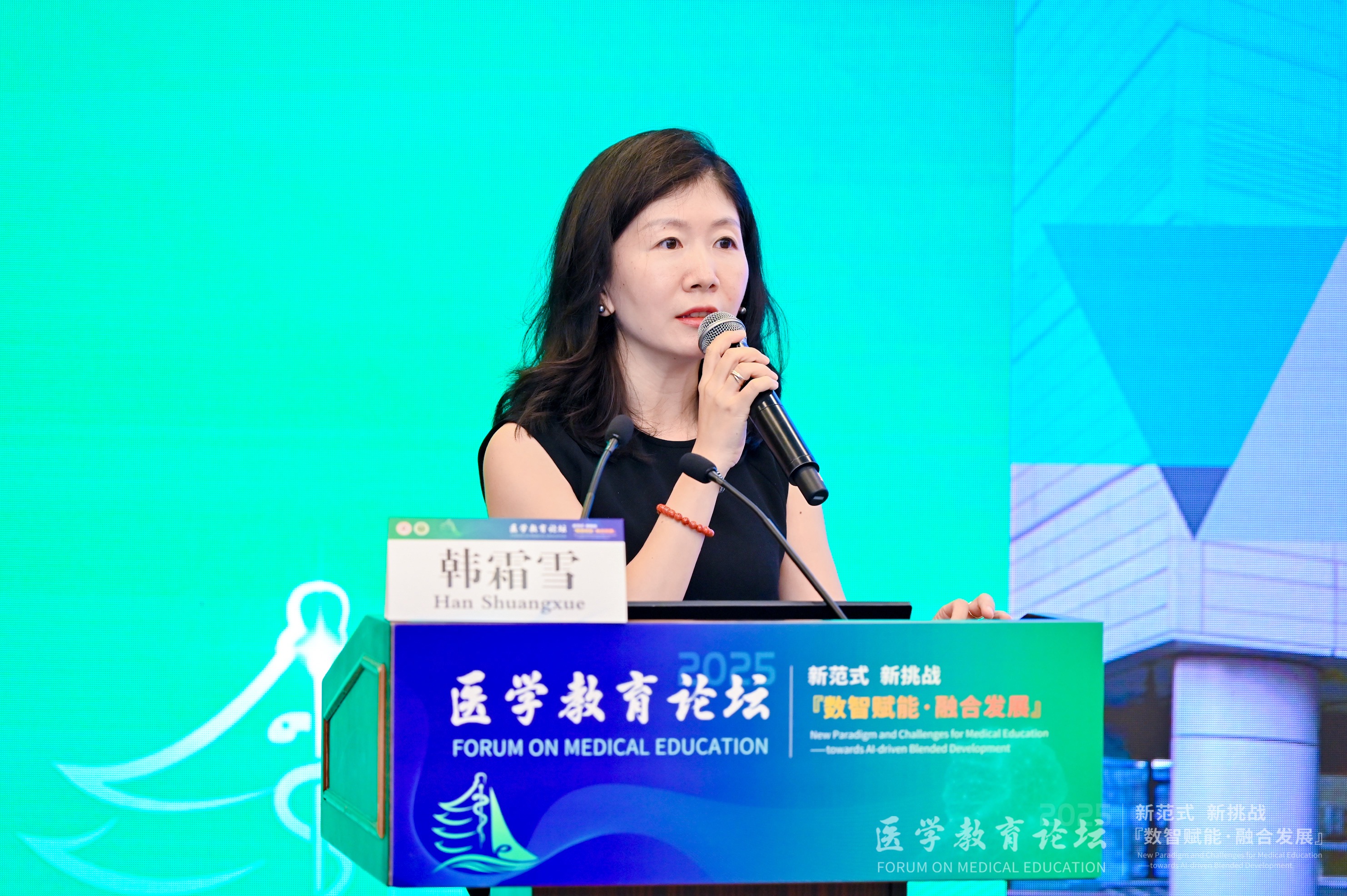
In the afternoon, the fourth session of thematic reports was presided over by Professor Shu Xiji, Executive Vice Dean of the Faculty of Medicine, Jianghan University.
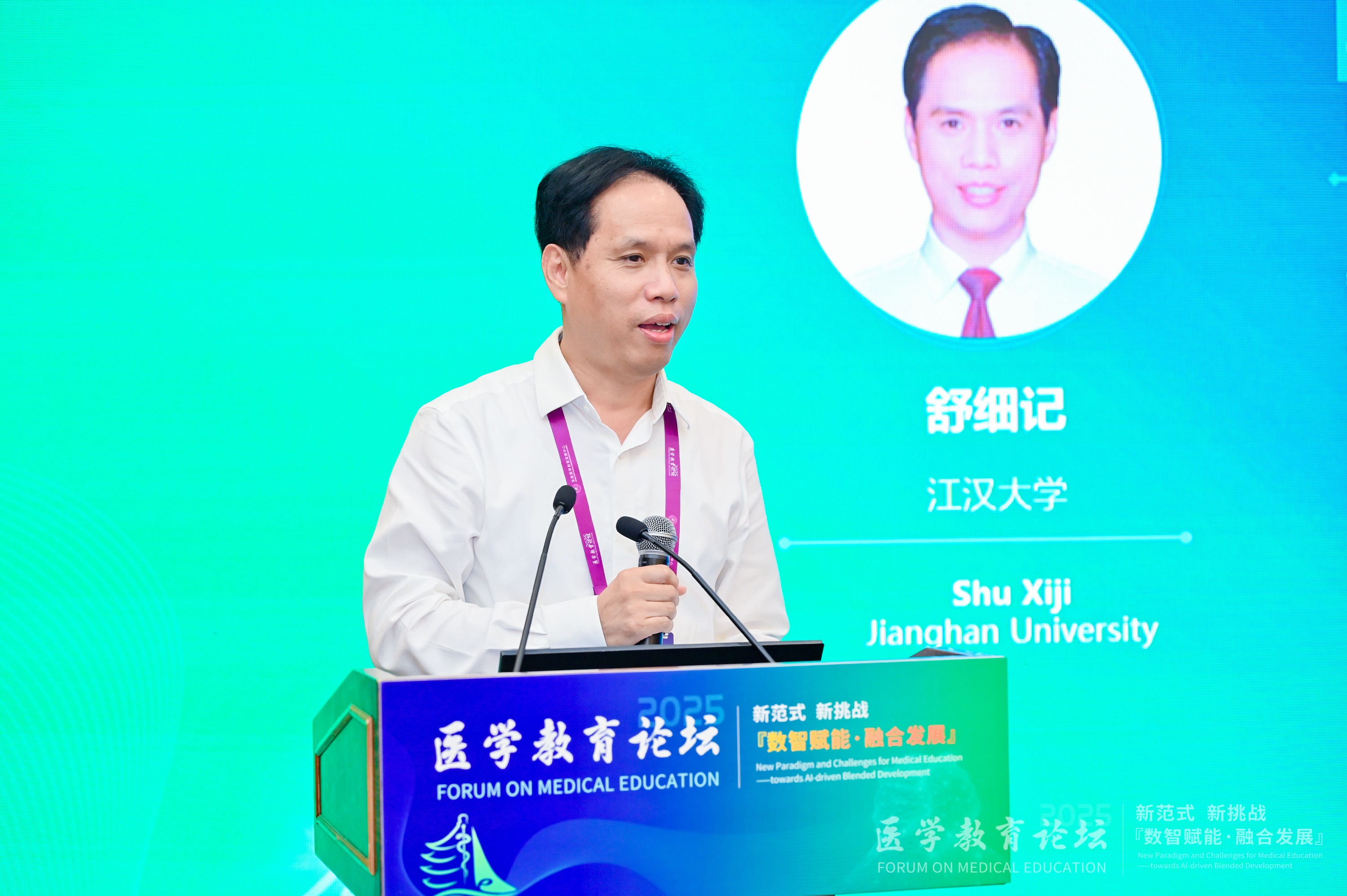
Lu Qiaocong, Director of the Humanities Service Department and concurrently Director of the Medical Humanities Research Office at the Sixth Affiliated Hospital of South China University of Technology, presented on the topic “When Technological Rationality Meets Humanistic Temperature: Empirical Dilemma and Breakthrough Strategy of Medical personnel’s Medical Humanities Literacy.” In the report, she shared work experiences such as establishing a “medical humanities ecosystem” and using intelligent agents to assist medical staff in quickly generating narrative medical records to solve the problem that “writing is difficult for science students.”
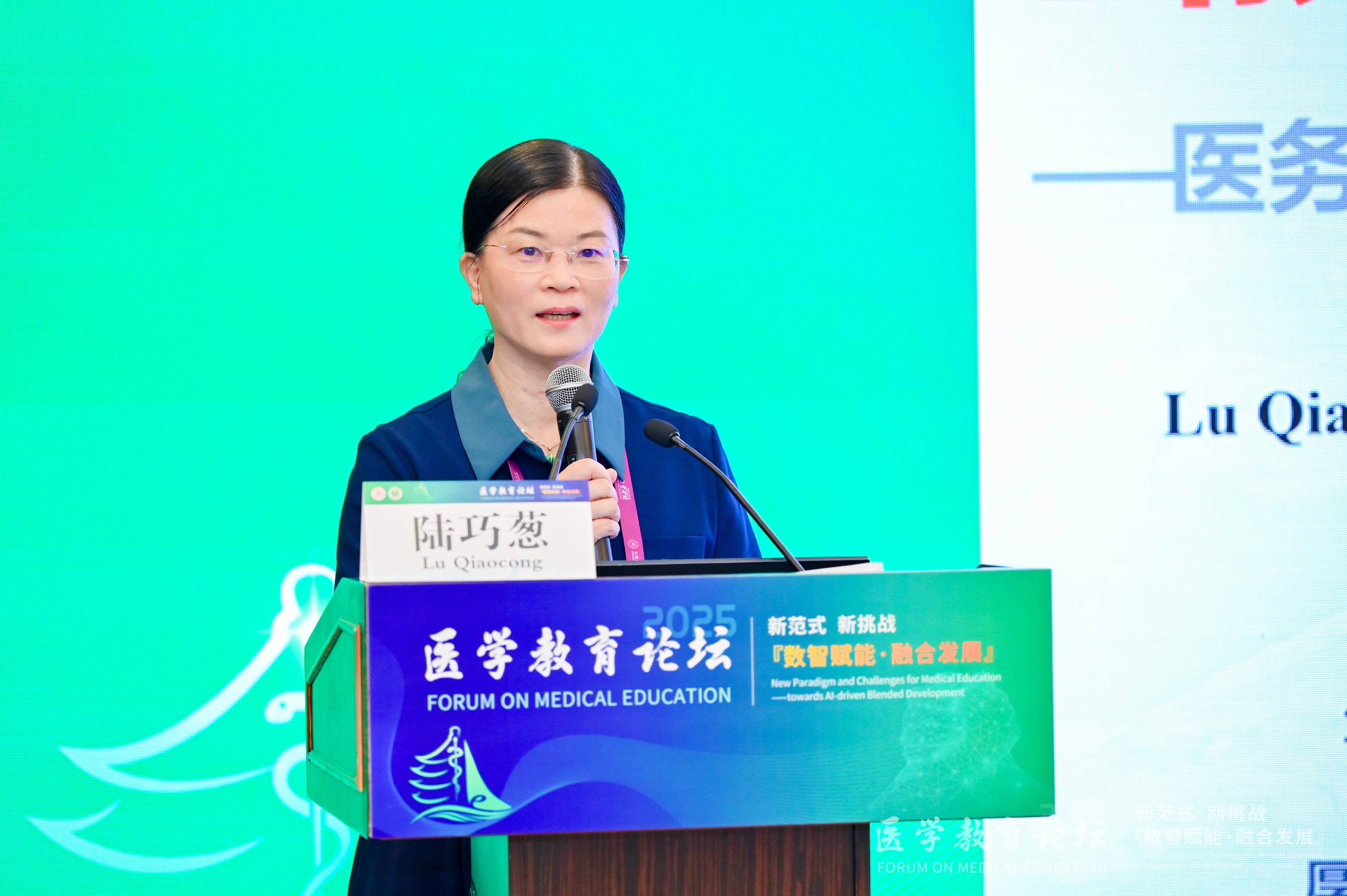
Dr. Zhang Xiaolei from Fudan University delivered a report titled “Reflections on the Functions and Paths of Medical Humanities Education in Medical Museums under the Perspective of Situated Learning.” Dr. Zhang proposed an educational path for medical museums, that is, to construct a “situation-community-participation” three-dimensional educational model through multi-point narratives to strengthen the professional identity of medical staff.
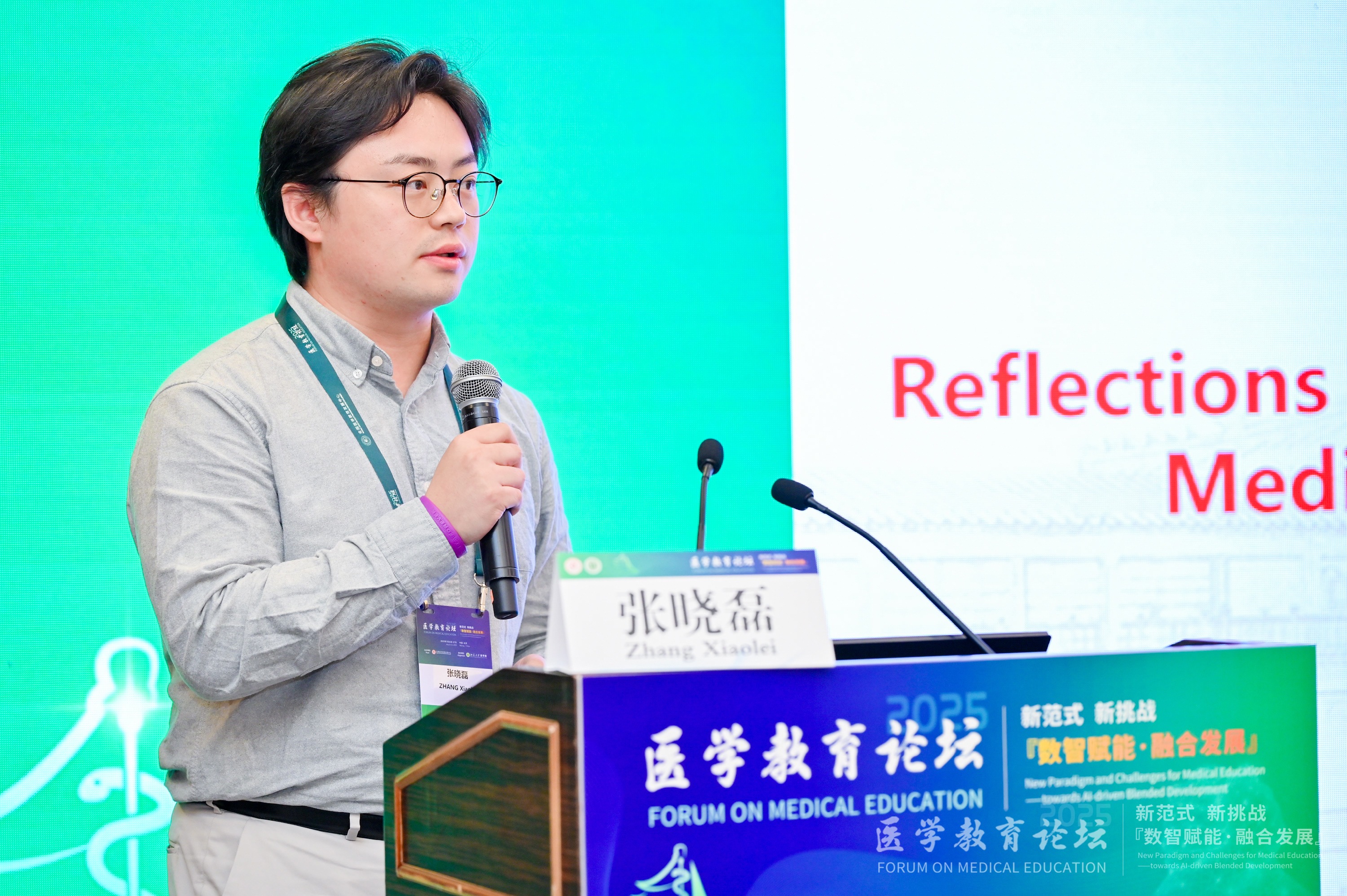
Finally, Professor Guo Liping summarized the conference. She stressed that in the current era of rapid technological development, upholding humanity and serving patients remain the shared missions of medical humanities scholars and practitioners. The conference concluded successfully amid applause.


